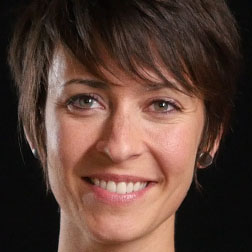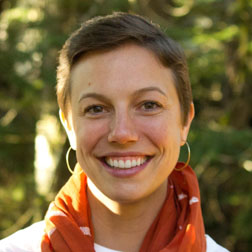“The opposite of Love is not Hate; it’s indifference.” – Elie Wiesel
Last month, I wrote about The Awakened Takeover. Which is another way of saying I *dared* to articulate my deep intention and publish it for the world to see. And now…it has me by it’s teeth.
In it, I included this call to action:
Care more, open yourself to more perspectives, and you can’t help but become more engaged and optimistic.
Yet looking back on my own path, not caring enough was never the problem.
In fact, there was a time when it felt like it WAS the problem.
Being able to take more perspectives, we get inundated with more information and our circle of care expands. The world pulls on us in new, more diverse ways. We don’t just see need everywhere, we feel it. Our care pulls into new and different relationships with the world—and that gives rise to a very distinct kind of challenge.
This is the challenge of how we cope with how much we care.
It’s true for me. I can recall a stage in my life when I became so overwhelmed by the stresses of public affairs and world issues that I stopped watching the news and reading papers. I would run the other way when water cooler conversations turned to current events. My only recourse in response to the overwhelm (read: care) was to unplug and disengage.
My struggle wasn’t that I didn’t care enough.
The essential obstacle for my care to become action was an unconscious bias. This bias said, “If I can see it I need to be responsible for and be able to fix it.” This preference towards being responsible (which is another way of describing a preference for issues that “I” can fix) held me in a mode where opening to more perspectives was freezing rather than freeing me.
So it actually wasn’t the scope or content of the perspectives, nor my care, but rather my unexamined preferences that made me unhappy and apathetic.
They held me in a cocoon of protective withdrawal, unable to engage and yet feeling a deep desire to make a contribution and do something. This happened both in situations when I was working in and with groups, and on my own.
To shift or untie this “knot” in my way of being, my ego needed to relax its grip on responsibility and doing, and practice being without an agenda. As I practiced and grew this particular type of awareness, I started to be able let more in. I recalibrated my caring and reengaged. Indeed, this more spacious mind soon turned to the multi-year creative process of manifesting the Integral Facilitator program pathway, and eventually Ten Directions.
Being able to free ourselves from the limitations of our biases and preferences—particularly those deep ones that can go unexamined for lifetimes—is what enables us to skillfully act on our desire to take action.
Like me, you too are subtly held in a bias or preference that you’re not aware of—which means really, that bias is holding you.
And being held or determined by our biases is no place from which to take awakened action.
Leaders, the Awakened Takeover relies on your active engagement with the whole neighborhood of your preferences and biases. This is a fundamental practice required for more conscious and adaptive facilitative leadership.
Here’s why:
Facilitative leaders are positioned to do two important things—to be vehicles for greater engagement and collaboration, and to free up consciousness to improve how we all get along.
Let me say that again: Facilitative leaders are vehicles who are capable of freeing energy and consciousness in service of greater engagement and collaboration.
And that, my friends, is the heart of the awakened takeover.
The good news is, facilitative leadership doesn’t require big, glamorous actions.
Each act—a conversation, a group decision making process, a conflict resolved—offers the potential for an awakened takeover. Each small act can be an act that frees you and others to be more authentic participants with each other and with reality.
And the first step always begins on the inside, with the self.
Listen closely:
The first step towards authentic, present, facilitative leadership and small everyday acts of greatness in service of others is…the self inside of you.
This is the one unwavering rule of this game we’re all in: Whatever you cannot work with in yourself, you will not be able to work effectively with in others.
In other words, inner evolution for social revolution.
Until you can find unseen perspectives in your self, you will be challenged to find them outside of you. Until you can embrace the knots of bias in yourself, you won’t be able to unlock them around you. Until you can free yourself from the habits that keep you safe, you will not be able to liberate a group or an organization to pursue what’s outside of the known and familiar.
Removing our biases and preferences is what creates more spaciousness and allows us to be more responsive.
So I’d like to know: What do you care about? Where are your biases? What preferences have become habits that encircle you?
Here’s a reflective practice that I’ve found to be profoundly supportive for developing more spaciousness and cultivating an unbiased mindset.
I recommend sitting in a quiet space, and in your journal, list several “sentence completions” in response to each of these prompts:
As biased mind, I care about….
As biased mind, I experience limits when….
As biased mind, I trust reality when.…
As biased mind, I relate to change as….
As unbiased mind, I care about…
As unbiased mind, the way I am limited is…
As unbiased mind, I trust reality ….
As unbiased mind, I relate to change as….
As the one that includes both biased and unbiased mind, I offer the self….
As the one that includes both biased and unbiased mind, I offer the group….
Later, review the responses and highlight the most vibrant and relevant insight for you and your practice.
The next time you are working with a group, try working with the insights you’ve gained.
And don’t forget: each act you take has the potential to be of service to others. Every small moment contains within it all the ingredients necessary for an awakened takeover.
Rebecca Colwell
Co-Founder, Program Director—Integral Facilitator
CEO—Ten Directions




9 thoughts on “Facilitative Leadership: Inner Evolution for Social Revolution”
Rebecca,
You rock.
This is a gorgeous articulation of….. I don’t even know what word/s to place here…..
Help me out.
Multiple Choice:
A. Alive Engagement.
B. Honest Living.
C. Showing Up.
D. Getting Real.
E. You
F. All of the above
I’m going with F.
Gotta love multiple choice.
Sort of like multiple perspectives.
Tee Hee..
Oh my – thanks so much for your feedback Sarah! Love your good humour and playful response – you are contagious!
Thank you for your assurance that we don’t have to be big and glamorous in our efforts in this endeavor. It all adds up and accumulates to a tipping point! Thank you for your very useful and practical sentence completion exercise, and thank you for sharing your brilliance with the rest of us Rebecca!
I know what you mean, the drive to ‘make an impact’ is so often exaggerated! Instead of ‘going to scale’ let’s ‘right scale’ our actions – and increase the consciousness and frequency with which we act, with the skills we have, in a deliberately developmental way. My incremental efforts to close the gap between my personal performance and my personal potential is in service of others – as self and other are inseperable. Thanks so much for being in conversation Terry!
Rebecca,
Another powerful post – such inspiration and wisdom! I will take a quiet moment today and explore my biased and unbiased self.
thanks very much Maryse – I appreciate how you are taking this in and exploring it for yourself! What are you noticing?
Now we know who the sebslnie one is here. Great post!
I just loved this articulation of both dealing with your overwhelm of the bad news and responsibility, and the way out to actually looking at the bad news with capable responsibility, attenuated, calibrated, engaged, a way not only out, but including the original desire, to serve. Beautiful, speaks to many years of having the same stuckness!
I feel very inspired reading your article to make an exploration of bias the focus of my next leadership training. To also let all participants exchange feedback on how they perceive each other’s and their own biases, their filters, the way they look at reality and the assumptions they make. But I do also wonder: with the people I currently work with, who are operational team leaders working with big machines and molten steel, how can I bring in the spiritual perspective or alignment without needing to use the concepts of spirituality? My sense is that simply to create a space in which people discover their own ability to shift perspectives and allow not-knowing and connect with each other in a way that allows vulnerability, that that in itself can and does cause a small revolution and sense of discovery. But I really wonder what you might say to this… Thank you for a very powerful and inspiring text!